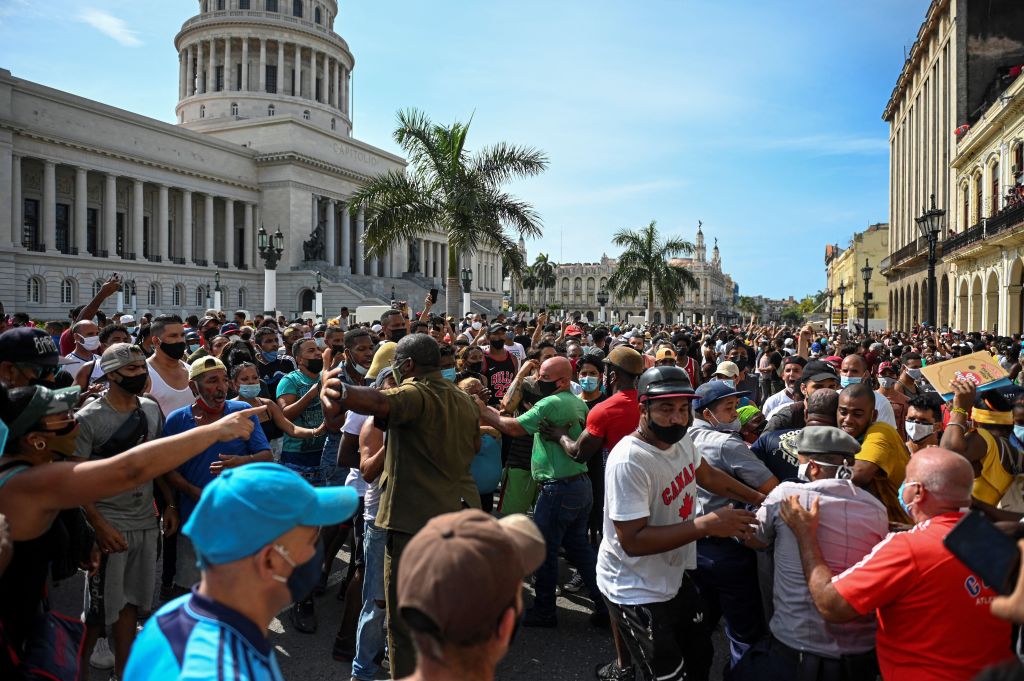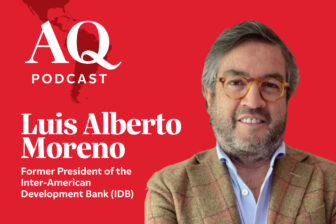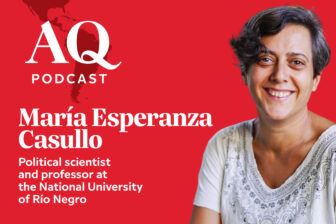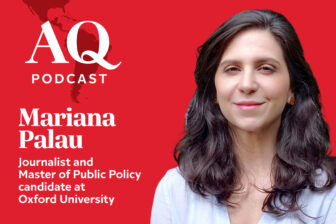
The world has viewed Cuba with less lenience since July 11, 2021. The repression of spontaneous demonstrations on that day and the next was shocking. Military and Interior Ministry forces, as well as undercover agents, violently confronted the masses of people who marched through the streets of dozens of cities and towns across the island.
The order, given by President Miguel Díaz-Canel on national television, transformed the popular marches into battlefields. A man from Güinera, a neighborhood of Havana, was killed by police, hundreds of protestors were detained and prosecuted, and significant material damage was done in neighborhoods where the protests took place.
The government’s behavior after the largest and longest social uprising in the history of the socialist Cuban state has not gotten any better. Official versions of the events blame the U.S. and have not recognized the true causes of the discontent. These are many: the deterioration of standards of living in the poorest regions of the country, the poverty accumulated over decades, the blackouts that remind people of the ominous days after the collapse of the Soviet Union, a surge in COVID-19 cases and deaths, the scarcity of medicine and food, the opening of dollar stores inaccessible to many, and the government’s vaccination strategy, which made some areas feel overlooked and discriminated against.
To limit protest organizing as well as the spread of video and audio of its violent repression, the government denied internet access for three days. Luckily, independent news entities and civil society organizations were able to preserve the bulk of what was recorded, and when people were able to get back online, they saw the images that showed a watershed moment in Cuban history.
The harshness of what the images revealed was accompanied by the harshness of the legal repression that followed. In January 2022, the attorney general’s office said that over 700 people were facing criminal charges related to the protests. In June, it announced that 297 people had been sentenced to between five and 25 years in prison.
Prosecution for crimes like sedition has proved even worse than the physical violence deployed last July. Many of the accused are minors aged 16 or 17, and some have received sentences that are longer than they have lived. Fortunately, many of the minors have received sentence reductions thanks to strong international pressure campaigns as well as efforts by the families, friends and sympathizers of the accused.
The political environment in Cuba is one of war. In the months after the July protests, Archipiélago—a movement of people from diverse ideological backgrounds who agree reform is urgently needed—spread through Facebook and called for a peaceful demonstration to take place in November 2021. The movement gathered thousands of participants. Among its leaders was the playwright Yunior García Aguilera, who immediately found himself harassed by the official press and security forces.
The demonstration in November was declared illegal, and then it was called off on the advice of Cuban Catholic Church leaders and many others who feared the terrible consequences of more repression. Still, Yunior decided to march alone. Security agents and other Interior Ministry and military forces, as well as members of Cuba’s government-aligned civil society, surrounded Yunior’s home and prevented him from marching, and he was expelled from the country.
Since December 2020, hundreds of dissidents, activists and civil society representatives have had to flee Cuba due to social or state pressure. This is part of a massive wave of emigration comparable only to that of 1980, the largest in Cuba’s history. More than 100,000 Cubans have crossed the Mexico-U.S. border in the last year.
Cuba is in a state of unprecedented ideological ferment, even deeper than that of the first years after the 1959 Revolution. Although access to the public arena is limited to social media and other digital platforms, repression of calls for reform is fueling political extremism. The long years of totalitarianism have produced a counter-surge of right-wing fundamentalists, irrational dogmatists and strident anticommunists. Proposals for political pluralism that seek reconciliation are not popular, at least not on social media.
At the same time, a weakening state is relentlessly persecuting independent journalists. The government produces TV programs simply to counter criticism of its totalitarianism and explain away political, economic and social woes by blaming the U.S. economic blockade.
In this political landscape, critical socialist perspectives suffer like any other that tries to rethink the Cuban political project. The Cuban population suffers dengue fever, COVID-19, giant African snail pests, tropical heat, blackouts and collapsing buildings. Cubans watch, stunned, as the government bets a large share of its resources on the construction of hotels, in an age when tourism is in drastic decline, and in a country where it is almost impossible for many to simply have a beer or take public transport.
A year after the popular uprising of July 2021, Cuba has changed little. It has largely overcome the pandemic, but poverty, declining standards of living, repression of dissent and the lack of hope for democratic reform continue to define life on the island. Civil society is struggling to cope, and thousands of Cubans are choosing emigration as their strongest political statement. Deepening oppression and desperation will push more and more people into exile. But sooner or later, new movements will again channel underground currents of opposition to challenge the status quo.
—
Fernández Estrada is a columnist at elToque and was a law professor at the University of Havana from 1999-2016. He has lived in exile since February 2022.








